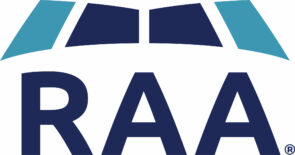
THREE ESTATE PLANNING REMINDERS FOR WOMEN
- Posted by RAA
- On August 18, 2022
When it comes to a list of the top 10 things that you like to spend your time doing, reviewing your estate plan probably isn’t one of them.
But while it might not be high on your list, it’s extremely important.
Regardless of what’s happening in the market or latest news headlines, protecting yourself, your family, and the legacy you’ve built, is a crucial piece of your financial puzzle.
We won’t be spending time on wills and trusts today, other than to say that if you don’t already have a will, or you think yours may need to be updated, we strongly encourage you to schedule a meeting with your advisor to begin the process of creating one, and to compile a list of any other important-but-missing estate-related documents.
With that, here are three areas of estate planning that are not commonly discussed – and therefore, often overlooked – but can have a huge impact on your family’s future and peace of mind.
1. Review Your Household’s Life Insurance
Should anything happen to you or your spouse, life Insurance is one of the best ways to protect your family from financial hardship. If you (or your spouse) already have a policy, be sure to review your family’s expenses, debts, and other needs, to ensure the coverage is still adequate. (And because the life expectancy for women is longer than it is for men, keep this in mind while conducting your review.)
In addition to life insurance, ask your advisor if there are any other types of insurance that might make sense for you. (Fortunately, RAA has an insurance specialist on the team who can help you to better understand what sort of protections you may need.)
2. Check Your Healthcare Power of Attorney
A healthcare power of attorney (HCPA) is a document that legally empowers someone you appoint to make critical medical decisions on your behalf (should you become incapacitated). This ensures that your wishes are still communicated to healthcare providers via your healthcare proxy (named on the HCPA).
Having this document in place can be particularly important if your spouse does not agree with your wishes, if you become widowed, or in the unfortunate event that something simultaneously happens to both you and your spouse.
3. Have a Plan for Accounts and Passwords
A large percentage of our personal information is now stored on computers and smartphones. With that in mind, it just makes sense that a loved one should have access to passwords and any necessary instructions to be able to access your financial information should something happen to you. (This list should not only contain passwords for all your computers, and any other locked devices, but all your password-protected subscriptions and social media, as well.)
While it’s the last thing you want to have to deal with in the aftermath of losing a loved one, a little foresight not only goes a long way, it will also relieve some of the stress by streamlining the process of notifying creditors and other institutions that the account holder has passed. In support of this, be sure your login information to all your financial accounts, social media, subscriptions to services like Amazon, and anything else that will need to be accessed in the event of your death, is kept somewhere safe that a designated family member or friend can access.
As a last reminder, be sure you include the passcode to your mobile phone to allow your loved one’s access to the two-factor text authentication that so many financial and social media accounts require for entry. (Many sites (such as Facebook) have developed an option to set-up a legacy contact who can assume control of an account after they pass away.)
Lastly, to help you complete these tasks, RAA’s Planning Ahead Organizer has a section where you can document this password information. Click here to download a copy.



0 Comments